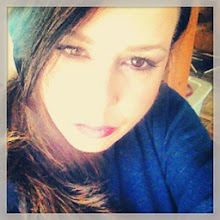 (An excerpt from unpublished manuscript, "Homesick")
(An excerpt from unpublished manuscript, "Homesick")It’s been two years since I’ve seen my father. I want him to tell me stories, so I can bridge the gap and connect the pieces of his life. I’m prepared, as usual: fresh batteries, new tape, and a microcassette player.
We’re traveling to Roswell, New Mexico, mainly because I’ve never been there. Roswell sits about an hour and half from my father’s house. In Carlsbad where my father lives, even the locals ask if I’m going to Roswell on my visit. What is there to see? I wonder. They tell me I’ll have to go there to see for myself, maybe catch some UFO activity. Maybe Roswell is one of those places that most people want to say they’ve been to, like Niagara Falls, Grand Canyon, and Yosemite National Park. I know only of fragments of this story—Roswell aliens and the involvement of the U.S. Government who supposedly captured alien(s) and performed top-secret tests, probing for answers, perhaps looking for any similarities they could assimilate between our two worlds. According to Wikipedia on the Internet, it says: “Roswell is most popularly known for having its name attached to what is now called the 1947 Roswell UFO incident, even though the actual crash site was some seventy-five miles from Roswell and closer to Corona. However, the investigation and debris recovery was handled by the local Roswell Army Air Field.”
At Roswell, I find tired buildings—most of them advertising an alien in their windows: Alien T-shirts; alien lunch specials; alien artifacts; get your picture taken with an alien. The heart of the city includes dusty museum halls with black and white photographs—an “Alien Hall of Fame,” with tourists filing in and out. Various photographs of a “flying disc,” are adhered to poster boards, spotlighted with incandescent lights inside Plexiglas boxes; the possibility of life outside of earth illuminates. We are no different than their mystery. We carry our own unanswered questions. I watch my father, who’s ahead of me, already in the adjoining room peering in close reading a series of letters posted on the wall, testimonies by farmers who saw the big light in the sky, heard the crash, or found items of the spacecraft in their fields. He appears anxious—shifting from one foot to the other as he reads, pulling back, then closer to read a bit more. I sense he’s already ready to leave and we’ve only been here ten minutes.
I wonder if the locals have grown tired of the stories, or even if they believe Roswell’s history. It’s possible they’ve grown impatient waiting for the next flying saucer, some of them finding it better to ignore their social responsibility in keeping the local legends alive, keeping South Washington Avenue drawing in economic revenue. This is the road we’re traveling. The desert sun becomes lost to a sea of silver that stretches across the sky. I’m the alien. I want to break the silence in the car. I look for the red light to know it’s my cue. Placing the microcassette player between us, I ask my father to share a story with me.
“Put that away.” He turns his face, as if the cassette player might snap his picture, show his age. All I want to do is capture his voice, hear the story first from him—hear his version, any version. As my father has grown older, his stories have become thinned out, almost to the point that I can see through them. I watch the distance grow between us, even with two feet from each other in the truck.
“Why not, dad? I want to record your stories. Please…?” But, I’ve already clicked the STOP button with my thumb, the cassette player cradled in my left hand. I stare at the black lettering SONY and begin trying to scratch the S off using the edge of my thumb nail. The letter won’t budge. It’s as if I want to erase something, anything, so I can start over—get it right. I put the cassette player on the floor of the truck floor and look to my father whose concentrating even harder on the road. I’m not sure if he knows this may be last visit, like any visit we have one another.
“Because, I don’t want you to. Okay. I don’t want to be recorded. Understand?” He cracks the window a couple inches, like the way he did to when he used to smoke. I wonder if he’s thinking about a cigarette and if he will always think of one every time when wind brushes up against his left ear.
I say nothing. I’m at a great distance with courage and it may never be found. What I want to say is that since he began to lose his hearing, left California over ten years ago, that he’s not interested in having conversations with me outside of the weather or finances. Both are so unpredictable—nothing will change, while it changes all the time. I want to hear about his stories, like the Korean War and the special assignments for the U.S. Government. I know he’s old and when he dies I’ll regret not attempting to capture his voice—on those same days when I’d do anything to hear him ask me what the temperature is in California and how my job is—and how I’ll respond that I don’t expect a layoff, I’m going to make rent, and how everything is okay. Perhaps my father has already begun to let go would rather live through memory, not by voice. Maybe I’m no different than a scientist trying to understand another being, wanting to know if behind those big eyes there lies a mutual desire to understand one another.







No comments:
Post a Comment